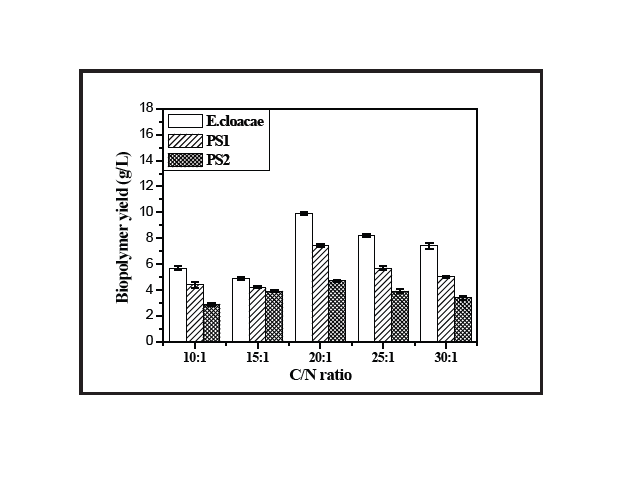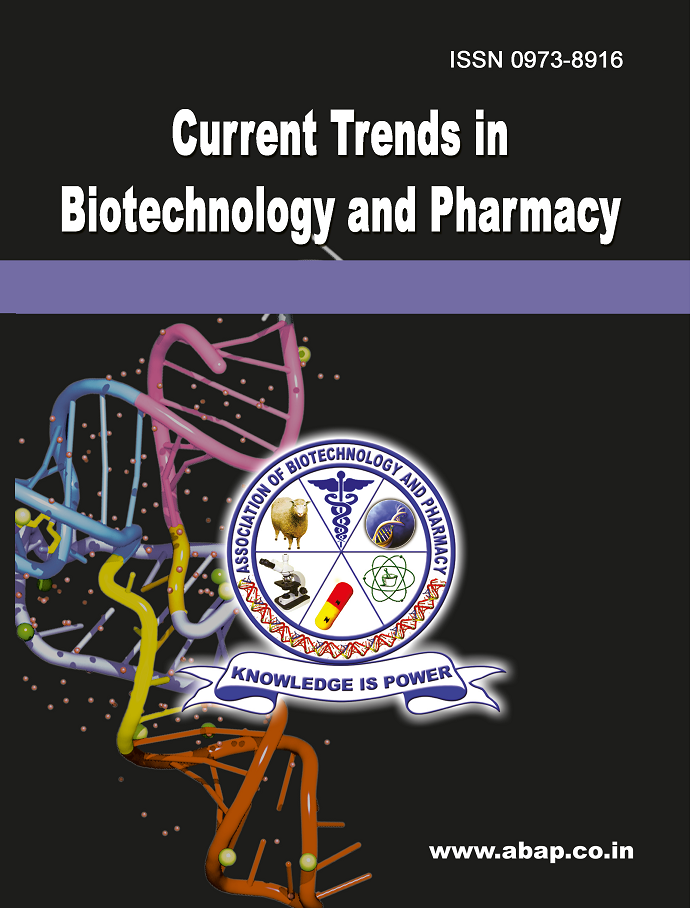Effect of Synthesized Biopolymer on Physiological and Biochemical Changes in Maize Seeds
DOI:
https://doi.org/10.5530/ctbp.2022.2s.34Keywords:
Biopolymer, Seed priming, Salinity, Biochemical effect, Amylase and proteaseAbstract
The present study was conducted to check the mixed fruit waste as a substrate for biopolymer production. The hydrolysate obtained after alkali treatment was fermented by a novel strain Enterobacter cloacae and isolated bacterial strain (PS1 & PS2) to produce biopolymer. Ammonuim sulphate (1g/L) was a suitable nitrogen source for biopolymer production among the different nitrogen sources tested. The optimum environmental conditions were: initial pH 7.0, temperature 37 °C, and the C/N ratio was 20:1. Under these controlled conditions, biopolymer yield from Enterobacter cloacae, PS1and PS2 was elevated to 8.4,6.2 and 4.2 g/L, respectively. The FT-IR spectra of biopolymer from Isolate PS1 and PS2 indicate symmetric (O-C-O) presence at 1600cm-1 and asymmetric absorption peak at 1400 cm1. The obtained results suggest that these biopolymers may be similar to PHB. The effect of biopolymer (BP 1) on physiological and biochemical changes in maize seedling growth at different NaCl salt stress concentrations (100, 200 and 300 mM) and Na2CO3 salt stress concentration (25, 50 and 75 mM) were studied. The values of starch content, protein content, alpha-amylase and protease activity were obtained to be higher at 0.4 to 2.4 % concentrations of BP1 when compared to control, Crabshell Extract (CE) and Green Polymer (GP) treatments.



